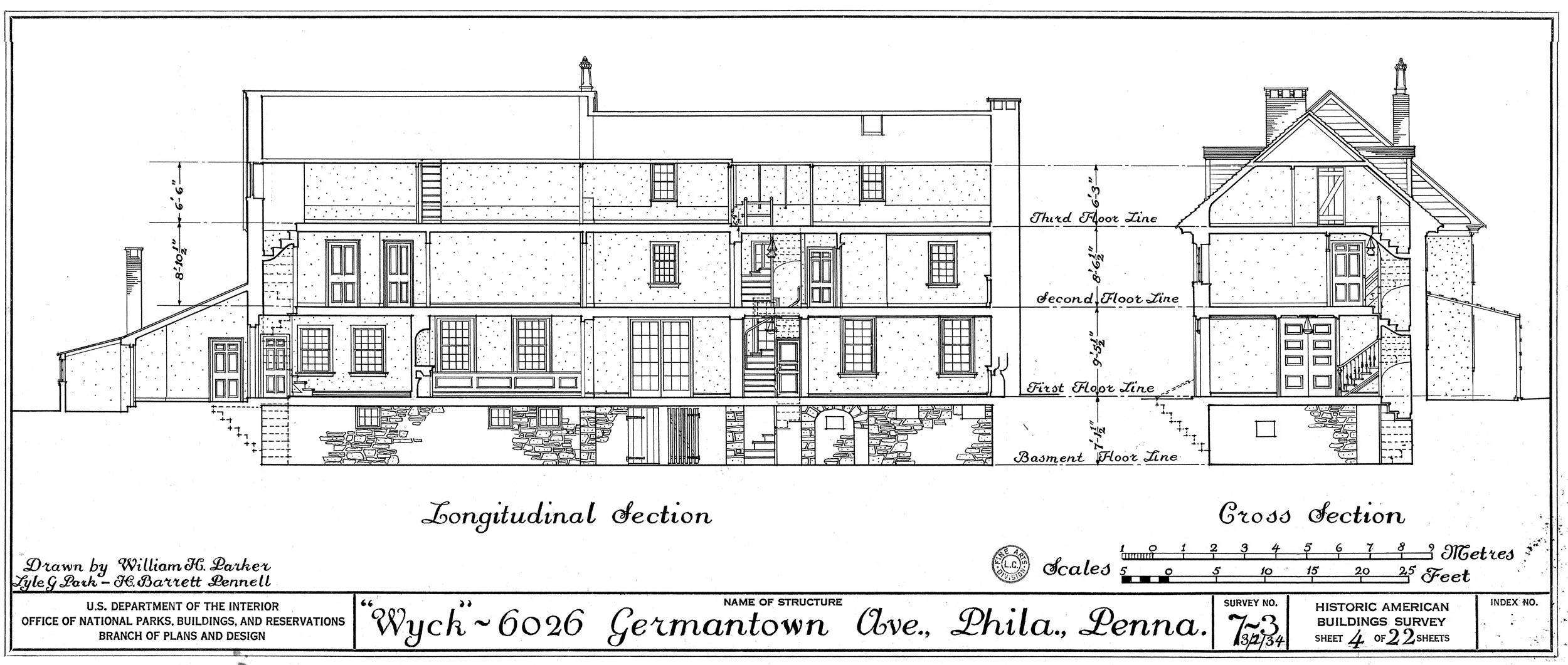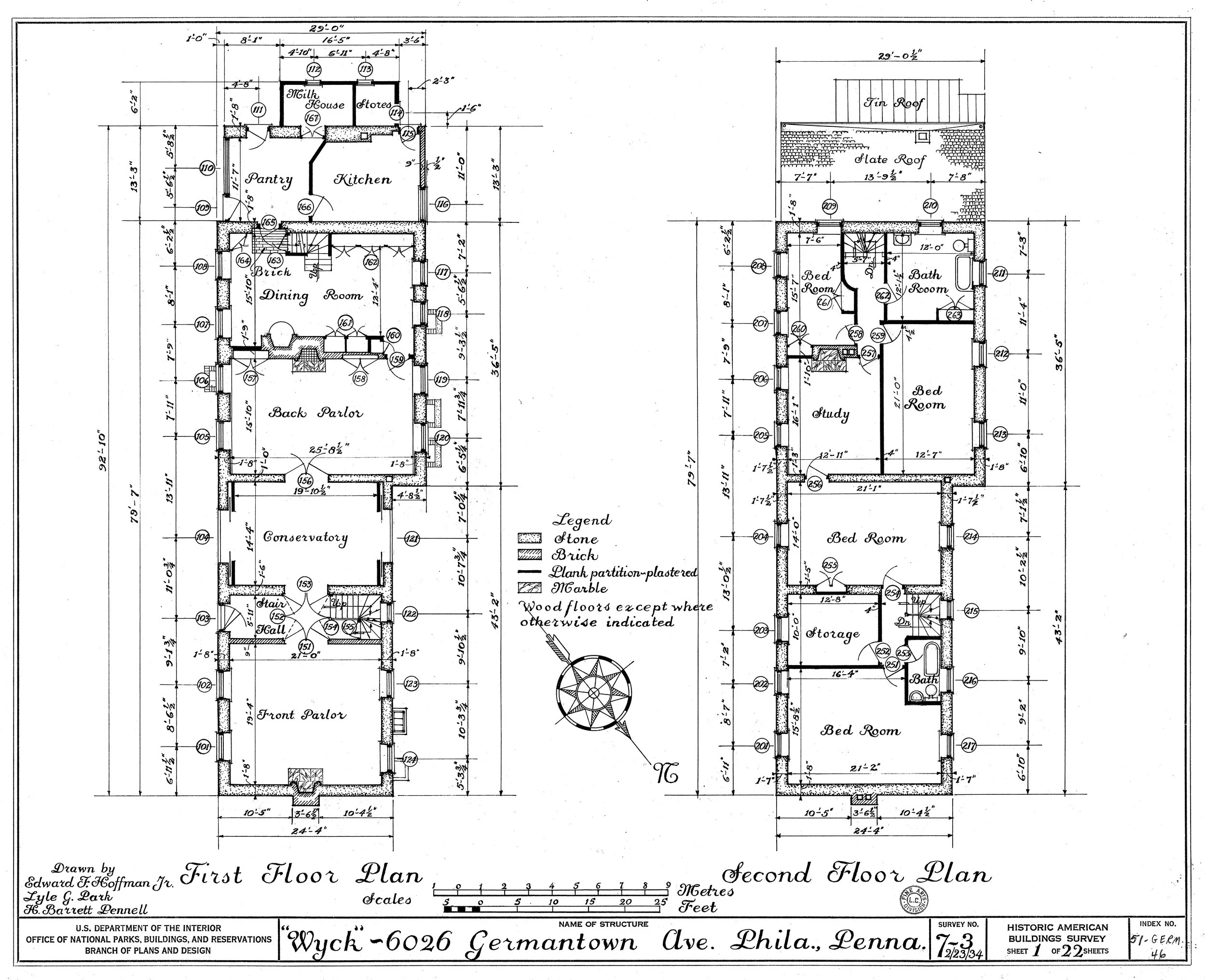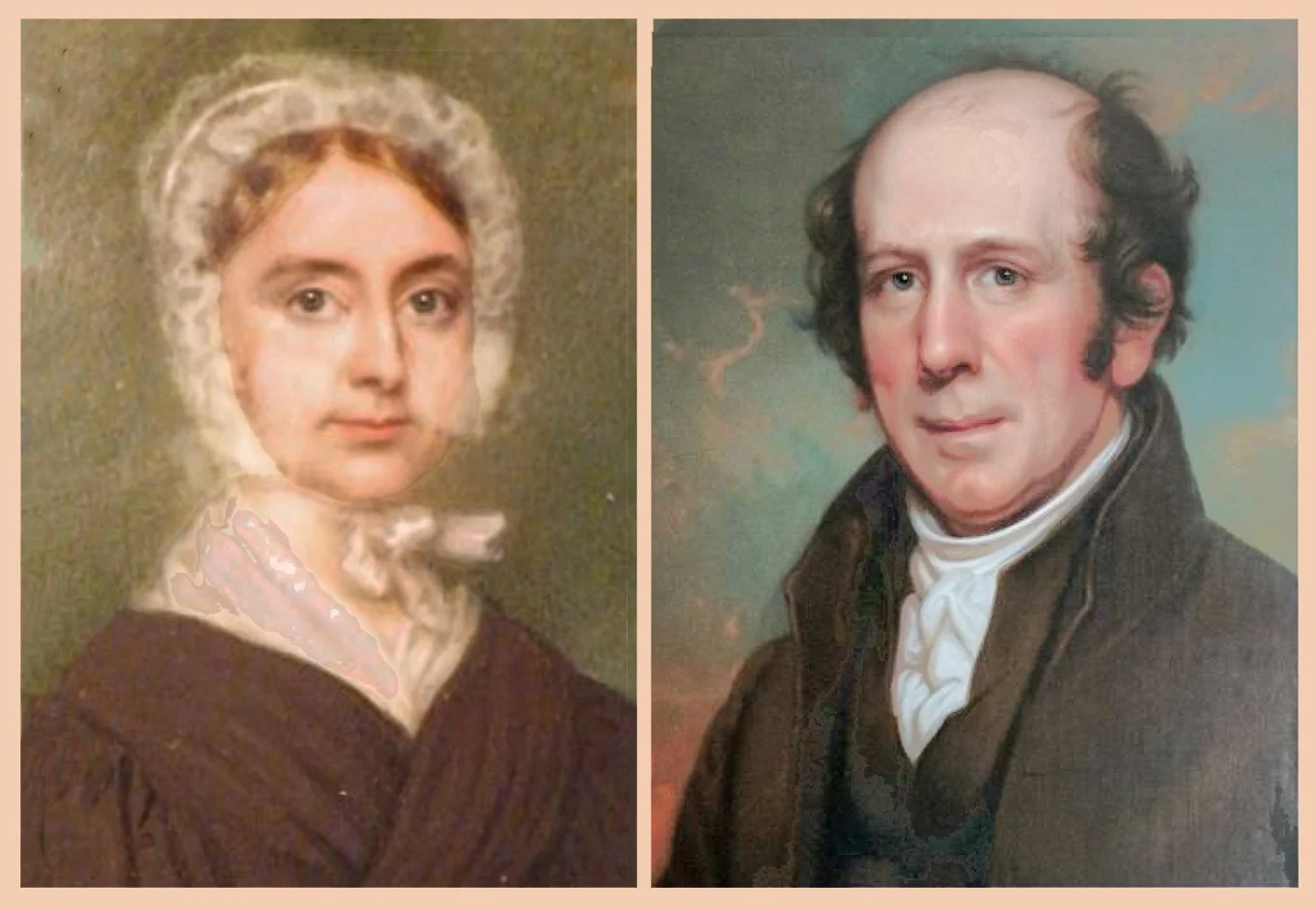Historic Quaker Houses of Philadelphia
Wyck House
6026 Germantown Ave. Germantown
Home to Nine Generations of a Quaker Family:
Above: Wyck House in Germantown, Philadelphia. Image source: Vin de Vie
Wyck House: Home of Caspar Wistar,
Early American Glass Pioneer
Founder of the First Successful Glass Factory in the Colonies
Above: Glass attributed to Caspar Wistar / Wistarburgh Glassworks, active 1739 to 1777.
Left: Schnapshund / Schnapps hound for serving schnapps: Metropolitan Museum of Art. Center: Cream basket, Corning Museum of Glass. Right: Covered bowl, Winterthur
The Wistarburgh Glassworks was founded ca. 1739 in Salem County, New Jersey, by German Quaker immigrant Caspar Wistar. It was the first successful glass factory in the American colonies. Wistar produced bottles, window glass, and scientific glassware. The company played a vital role in supplying goods that were otherwise imported from Europe.
The glassworks helped establish early American industry and trained a generation of glassblowers whose skills spread throughout the colonies. Its success marked a shift toward domestic manufacturing and self-sufficiency, making Wistarburgh a key chapter in the development of American industrial history.
Caspar Wistar moved into the Wyck House with his wife, Catherine Johnson, after they married in 1726. Philadelphia was Caspar Wistar’s primary residence. Wyck House in Germantown served as a family home and summer retreat.
Measured Drawings of Wyck in 1934
For the Historic American Buildings Survey:
Above: Longitudinal section of Wyck drawn by William H. Parker, Lyle G. Park, and H. Barrett Pennell. Image source: HABS
Above: Floorplans of Wyck drawn by Edward F. Hoffman, Lyle G. Park, and H. Barrett Pennell. Image source: HABS
Wyck is two houses built separately and later joined together. The older part of the rear portion of this house was built ca. 1771-73 on foundations of a 1690 house by Hans Milan. The house was remodeled in 1824 by William Strickland.
Dirk Jansen (ca. 1680-1760) built the house that now forms the western end of Wyck. The gable end faced the road, which was typical for Dutch and German houses. The house had the Germanic three-room floorplan with a central chimney.
The 1820s Rose Garden at Wyck
The Oldest Rose Garden in its Original Plan in America:
Above: The rose garden at Wyck in Germantown. Image source: Wyck.org
The Wyck rose garden dates to the 1820s and is widely recognized as the oldest rose garden in original plan in America. This historic garden was designed in 1821 by Jane Bowne Haines (1790-1843), who moved from New York to Philadelphia after marrying Reuben Haines III. The garden was installed alongside house renovations by noted architect William Strickland.
What makes Wyck's garden particularly significant is that it contains both the original rose plants from the 19th century design and plants from its earlier iteration as a kitchen garden in the 18th century. The garden is a rare survivor of its time, with over 50 cultivars of historic roses still growing in their original locations.
Jane Bowne Haines
Her Rose Garden at Wyck House:
Above: Left: ‘Lafayette’ Rose. Center: Jane Bowne Haines. Right: ‘Elegant Gallica’ Rose. Image sources: Wyck.org and Instagram WyckHouse
Jane Bowne Haines (1790 - 1843) designed the Wyck rose garden in 1821. Her sketch of the garden parterres survives today. Her grand-daugher, also named Jane Bowne Haines, founded the Pennsylvania School of Horticulture for Women in 1910. Today that school is the campus of Temple University Ambler.
Jane Haines and her Husband Reuben Haines III
Quaker Social Reformers and Anti-Slavery Advocates:
Above: Jane Bowne Haines. Her husband Reuben Haines III. Images source: Wyck.org
Reuben Haines III and his wife, Jane Bowne Haines, were deeply involved in progressive causes at Wyck, including anti-slavery advocacy, social reform, and Quaker philanthropy. Their home became a hub for reform-minded individuals, naturalists, educators, and abolitionists.
When Reuben Haines was only 23 he stepped away from business, announcing his intention to focus on “the pursuit of knowledge and the society of genuine friends.” He threw himself into scientific farming, led efforts to improve education, and played a key role in founding the Academy of Natural Sciences, the Franklin Institute, and the Pennsylvania Horticultural Society.
Jane Haines worked with groups dedicated to educating the poor, reforming prisons, and ending slavery.
Architect William Strickland
Renovations to Wyck House in 1824:
Above: Architect William Strickland portrait by John Neagle. Two Philadelphia buildings by Strickland: the Second Bank of the United States and Merchants’ Exchange. Image sources: Portrait: Yale University Art Gallery, Buildings: Library of Congress
In 1824, Reuben Haines III and his wife, Jane Bowne Haines, hired architect William Strickland to renovate Wyck House. Most significantly, Strickland transformed the interior by introducing an open floor plan. This change enhanced the flow of natural light throughout the house and visually connected the indoor living spaces with the surrounding garden.
Wyck’s annual award is named for this architect: the Wyck-Strickland Award.
Links:








